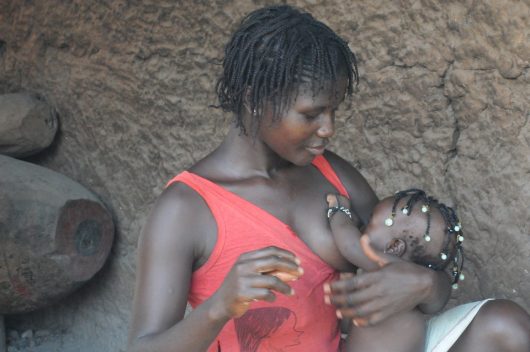Why We Need a Breastfeeding Advocacy Initiative

Only 38% of infants are exclusively breastfed for their first six months of life. Improper and insufficient breastfeeding contributes to nearly 800,000 preventable child fatalities every year. A breastfeeding advocacy initiative would not only challenge the social pariah of the practice but also contribute to the improvement of mothers’ and children’s health worldwide.
Breast milk contains all of the nutrients that babies need in their first six months and has the ability to strengthen a child’s immune system to protect against illness. Breast milk has also increased children’s physical and cognitive development.
The benefits of breastfeeding extend beyond a baby’s health. Mothers who breastfeed reduce their risk of suffering from postpartum hemorrhage, which is a leading cause of death among new mothers. Mothers also find themselves at reduced risk for diabetes and breast cancer.
Why Breastfeeding is No Longer the Norm
So why then are such a small percentage of babies exclusively breastfed? One reason for low breastfeeding rates is the issue’s generally low prioritization by political leaders and policymakers.
Women also feel that breastfeeding is looked down upon in the workplace and the public sphere. For instance, if women cannot find a comfortable place to breastfeed at work, then their child is less likely to receive his or her’s natural source of nutrients. Additionally, there are many companies that sell formula and aggressively market the concoction as being a better alternative to breastfeeding.
To improve breastfeeding statistics, there is a global breastfeeding advocacy initiative underway with support from organizations such as UNICEF and the World Health Organization. Initiatives focus on educating mothers and communities about the benefits of breastfeeding and supporting policies and programs that spread this message.
In the West African nation of Guinea-Bissau, one in 10 children will die before they reach five years of age. Organizations such as UNICEF and the non-governmental organization CARITAS work tirelessly to improve this statistic, and a fruit of their labor has been the nutrition bungalows that now exist in Guinea-Bissau.
Nutrition Bungalows
At these bungalows, mothers of children under five years old are invited to gather monthly for information sessions. The sessions are often interactive and they focus on promoting health for mothers and children. Mothers can also have their children measured and weighed to ensure that they are meeting developmental milestones.
These nutrition bungalows and all other projects incorporating a global breastfeeding advocacy initiative aim to spread awareness and increase support for exclusive breastfeeding in both the political and social spheres. In doing so, the lives of mothers and children can be saved and their quality of life improved.
– Nathaniel Siegel
Photo: Pixabay
